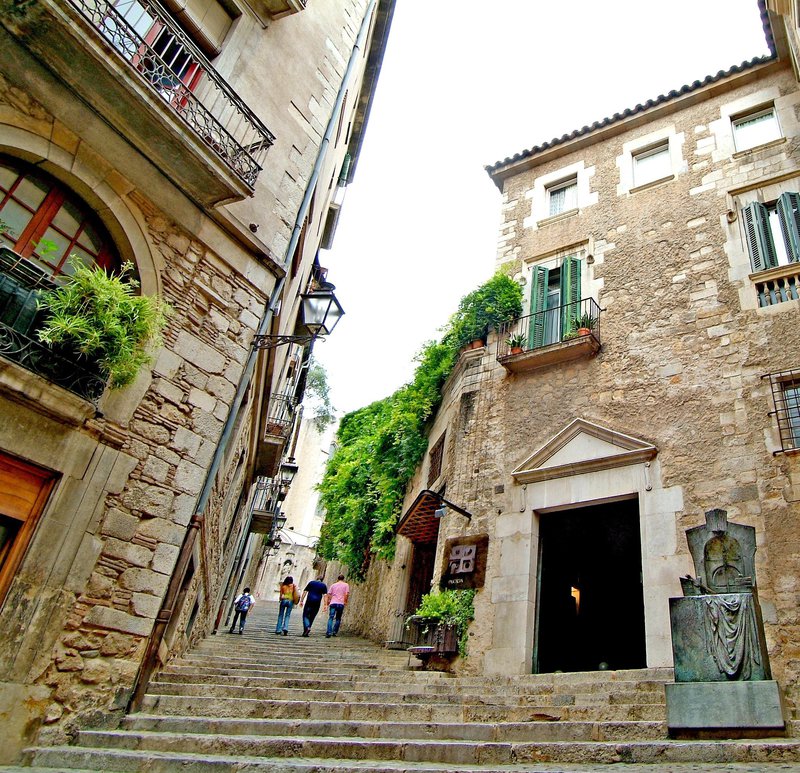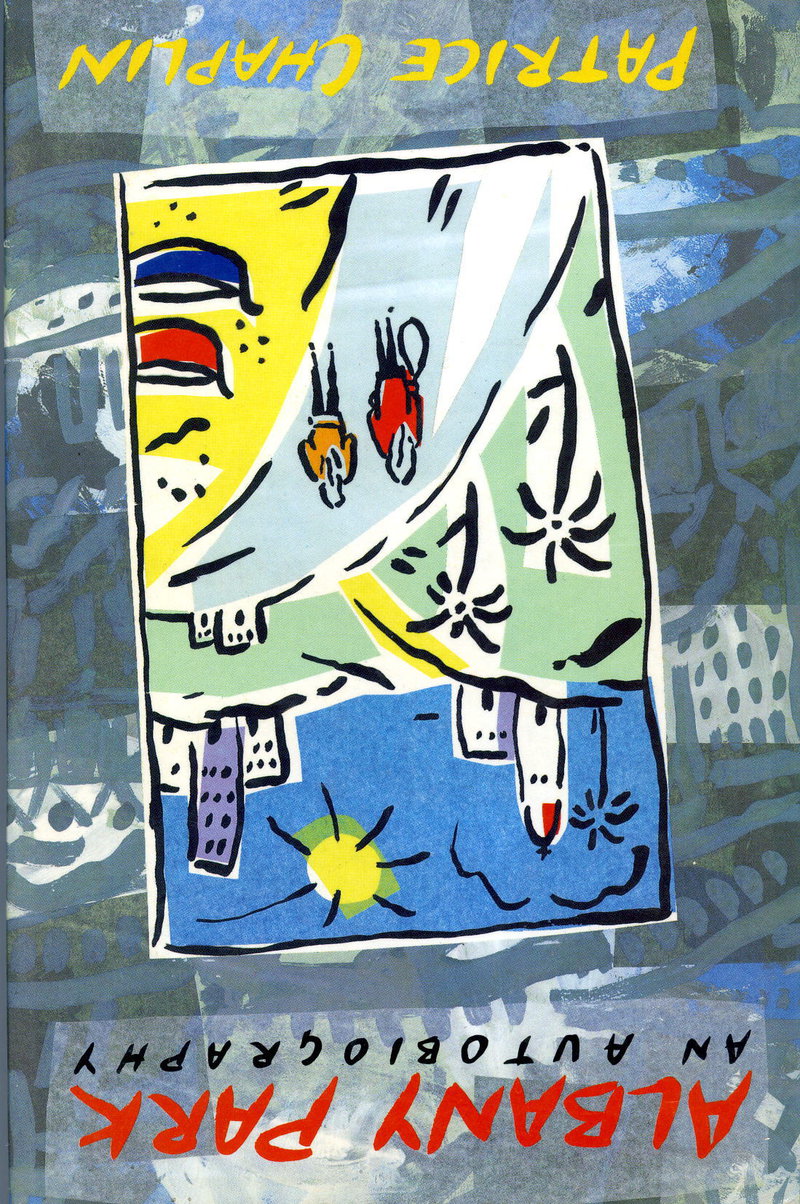Secrets of the stones An Entrancing Forest
Fleeing madness and boredom in Sidcup, Patrice Chaplin found love, excitement and freedom in, paradoxically, Franco's dictatorship
After the grim childhood and wild adolescence described in Albany Park, she (Chaplin) became a model and actress.
The Albany Park of the title is a dull, lower middle-class housing estate in Sidcup, South London, where Patricia grows up wild in the 1950s, daughter of a mentally ill mother. At 15 she and her best friend Beryl flee. They hitch-hike to Spain. There, in the magical city of Girona, Patricia meets Josep Tarrés, a man of fatal charm and a “marvellous smile”.
Perfect days
Imagine the clash: Girona is the antithesis of suburban South London. The two girls are sensationally exotic in Franco's Spain, in their hooped ear-rings, skin-tight trousers or slit skirts and bucketloads of make-up; and Girona is sensationally romantic and novel for them. Blithely unconscious of the murderous dictatorship, they lap up local attention, free meals and the ambience of this ancient city.
The handsome, calm Josep baptises the author Patrice and she falls in love with him, a love that lasts throughout the book, through all his secret activities, his affairs and ambiguity (is he gay? – is he a gigolo?), his unreliability and his unkept promises. Her adolescent crush becomes mystic passion, when at 30 she leaves her husband as soon as Josep reappears.
Despite disappointment and betrayal, it is with Josep that she feels most alive. With him, she had perfect days and felt better than ever before. “He'd laughed away my dark side and filled me with the love I'd never had.”
Albany Park contains several stories alongside Patrice and Josep's love. In Franco's Spain, where dissidents vanish overnight and Catalan is spoken only in strictest privacy, Patrice understands nothing. She is dazzled by adoration of Josep and “pre-Roman” Girona. She writes: “I'd never seen streets so narrow, with the buildings leaning across nearly touching the sky. It was like walking through a forest. I was already entranced by the light, it completely changed colours. I loved the smell of woodsmoke, the loud eau-de-Cologne. The alleys were symphonies of smells – hot olive oil, vanilla, leather, drains.”
Fighting for survival
Slowly, with assured narrative control, Chaplin has Patrice begin to understand that Girona is not just the magical forest of narrow streets where Jean Cocteau commandeers her into a film. It is, too, the heart of Catalan identity and of a tough struggle for survival.
The book is also a remarkable portrait of 1950s Britain, where these teenagers leave school, work in dead-end jobs and ride up to London as often as they can to dance in Cy Laurie's Soho jazz club. They are girls rearing back from their previously unquestioned futures as wives and mothers.
Though it was written in the 1980s, Albany Park is reminiscent of other novels of the 1950s, where the young yearn to escape the dull austerity and materialism of Britain post – World War 2. Chaplin's two girls live for clothes, dance and make-up. They dream of becoming Hollywood stars.
Patrice is no frivolous flibbertigibbet. Like Catalonia itself, she is fighting for survival. Her mother is suicidal. “She was a huge, sick jellyfish dying and I was still joined to her and her dying was poisoning me.” Very young, Patricia learns to forget past horrors. You dance. To survive, you dream of escape, then run forward and catch the dream.
Between Sidcup and Girona, the teenagers enjoy picaresque adventures in Paris and on the road. Penniless, they live off their wits, innocent youth and sheer luck. They beg, conjure kindness from strangers or get ghastly older men (“at least 26!”) to buy them meals, then run out on them afterwards. Patrice works as a showgirl in Pigalle. She learns how to handle “sex maniacs” who pick them up on the road, all the time keeping her virginity.
It is also a book that, without much explicit political explanation, reveals the oppression of Franco's Spain. Through Josep, Patrice meets the poet Salvador Espriu, doggedly defending Catalan culture, and she glimpses Quico Sabater, the anarchist fighting to overthrow the dictatorship. It slowly becomes clear that, under Josep's ‘cover' as a bohemian bon vivant poet, he is engaged in both the movement to defend Catalan culture and the more dangerous armed resistance.
Patrice Chaplin writes with clarity in shortish, direct sentences. She uses the slang of the time well, is good at dialogue and has a gift for description. There is art in the narration; for the full nature of Patrice's mother's illness is enticingly withheld till near the end; and the intrigues of just who Josep is and whether Patrice's teenage infatuation will last into a maturer bond are kept alive throughout.
Albany Park is a fresh and fascinating book. Patrice Chaplin catches with panache the voice, the feelings of a rebellious, energetic adolescent – a free spirit.
In recent decades, the daring teenage runaway Patrice Chaplin has devoted herself to the search for the Holy Grail. In the books, City of Secrets (2007), The Portal (2010) and The Stone Cradle (2015), she explores and explains her belief that Rennes-le-Château (in Rosselló) and Girona are linked, through the sacred mountain Canigou, by powerful, underground forces. In Girona, mediaeval kabbalistic centre and city of secrets, a mass of information on the Holy Grail is hidden.
After the grim childhood and wild adolescence described in Albany Park, she became a model and actress. At 19 (she was born in 1940), she went to RADA (Royal Academy of Dramatic Arts). In 1963 she married one of Charlie Chaplin's sons, Michael, and had two sons.
Patrice Chaplin has written over 25 books and has been successful as a radio and TV dramatist and film scriptwriter. Just as she and Beryl had dreamed in 1950s Sidcup, she did get to Hollywood.
Her books include Albany Park (there is a Catalan translation with an introduction by Miquel Berga of this magazine as “D'Albany Park a Girona”, 1991) and its sequel, Another City. Among her novels are The Judas Lovers (1971), Siesta (1979 – set in Catalonia and filmed in 1987 with Isabella Rossellini and Gabriel Byrne), The Unforgotten (1984) and Mr. Lazarus (2012).
In her old age, resident in Primrose Hill, London, she still visits Girona, feeling it as her spiritual home, and still sees the love of her life, Josep Tarrés, now well-known in the city for his intervention in the 1970s to save the Call (the Jewish quarter) from destruction.
Toward the end of Albany Park, intertwining her mysticism and her strange love for Josep, she sings a hymn to Catalonia: “José loved his birthplace more than he would ever love a woman or himself. He would protect it from the rape of Madrid with his life if necessary. And he wasn't unique. Catalonia's history was spotted with these charismatic figures who, bearing the secret of the stones, cherished it and defended it. They were a product of the soil and wind.”




